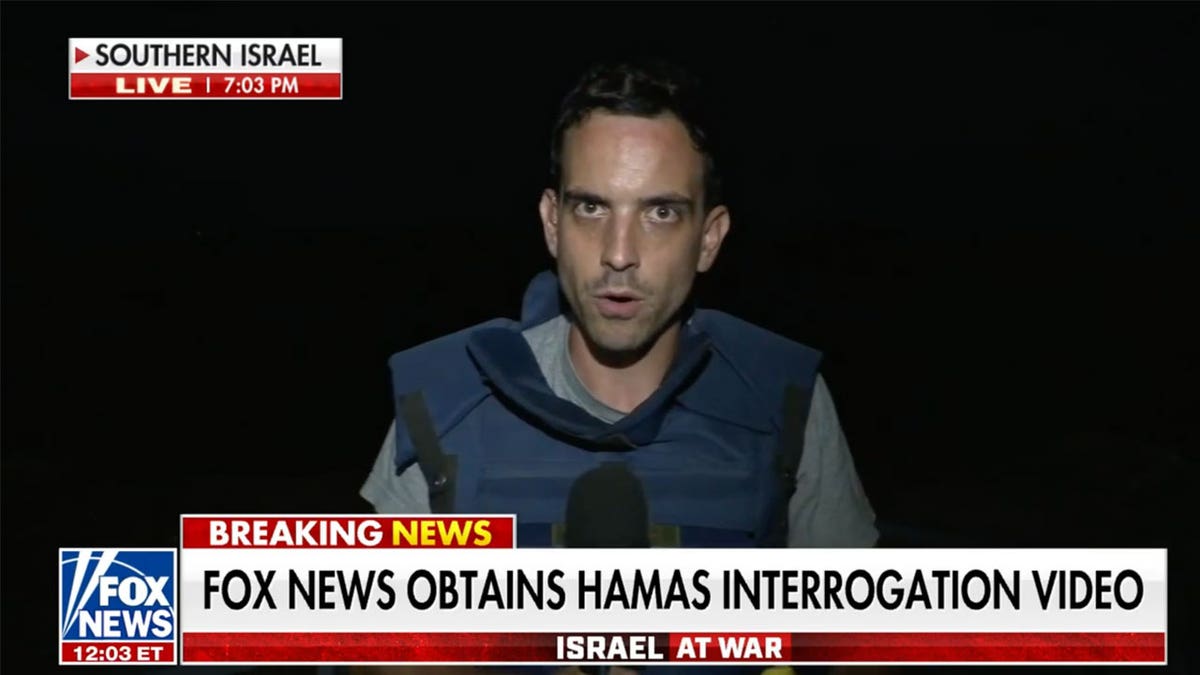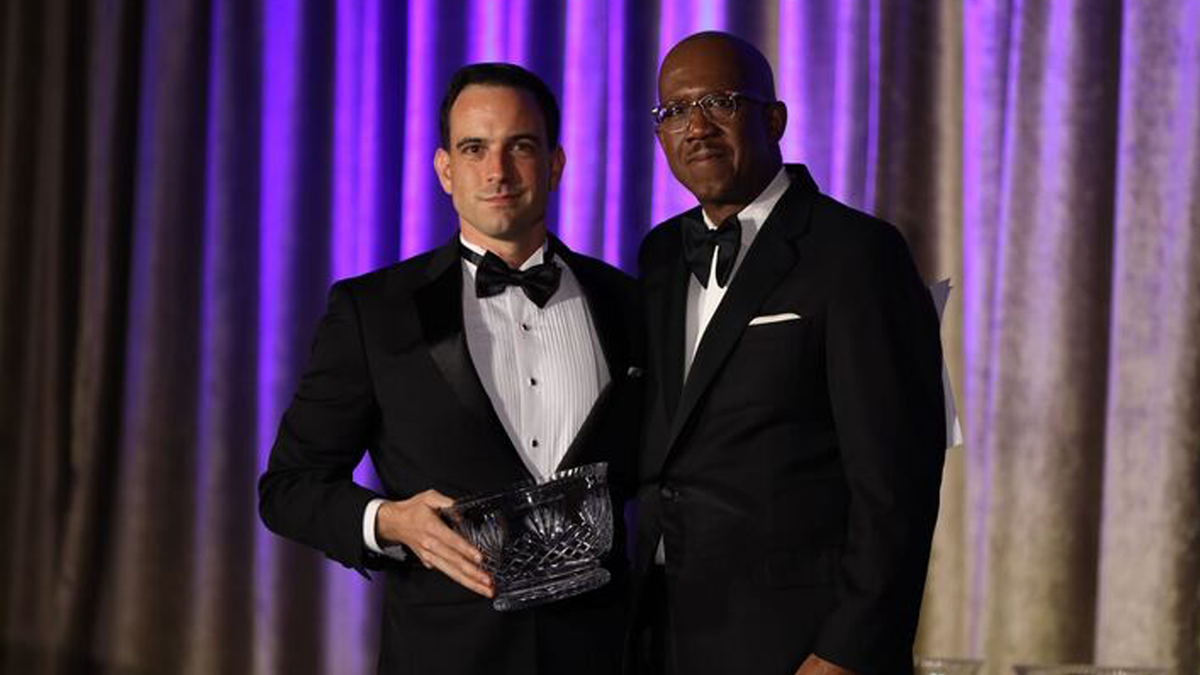Trey Yingst's Jewish Background: Facts & Insights | Discover Now
Is Trey Yingst's identity a matter of public interest, or is it simply a facet of his personal life? The relentless pursuit of information in the digital age often blurs the lines between professional profile and private identity, leading to a complex interplay of public perception and personal boundaries.
Born and raised in the United States, Trey Yingst has carved a distinct path for himself in the realm of international journalism. His career, particularly his on-the-ground reporting, has brought him to the forefront of news coverage, offering viewers and readers direct insights into global events. His work demands a keen understanding of geopolitical nuances and a dedication to accurate, unbiased reporting. However, the questions of personal identity, including religious affiliation, often surface in the public sphere, raising questions about the role of such information in assessing journalistic integrity and professional credibility.
| Category | Details |
|---|---|
| Full Name | Trey Yingst |
| Nationality | American |
| Known For | International Correspondent |
| Career | Journalist |
| Current Affiliation | Fox News Channel |
| Education | Yeshiva University (Attended) |
| Religious Affiliation | Jewish |
| Notable Work | Reporting from conflict zones, including coverage of the Russia-Ukraine war and Middle East conflicts. |
| Birthplace | United States |
| Years Active | 2010s - Present |
| Reference | Fox News Profile |
The very nature of modern news consumption, with its emphasis on immediacy and access, places unprecedented scrutiny on journalists. Yingst's reporting, often from active conflict zones, necessitates an acute understanding of the environments in which he works. This includes not only the political and military landscapes but also the cultural and social contexts that shape events. He has demonstrated a commitment to providing viewers with on-the-ground perspectives, offering a direct connection to the stories unfolding around the world. His choice to pursue journalism focusing on international affairs reflects a profound desire to inform and engage with a global audience.
- Denzel Pauletta Washington Inside Their 40 Year Marriage
- Philippa Northeast Bio Home And Away Movies More Your Guide
Yingst's background has, inevitably, become a topic of discussion. His religious background, in particular, has been subject to public speculation and interest. In the current media climate, where identity politics often intersect with professional profiles, this scrutiny is almost unavoidable. However, the relevance of his religious affiliation to his journalistic work remains a subject of debate. Does such information contribute to a more informed understanding of his reporting, or does it risk injecting personal biases into the perception of his professional output? These are questions that demand consideration from both journalists and the public alike.
One must consider the practical implications of reporting from sensitive areas. Conflict zones, like those Yingst has covered, present unique challenges. The ability to navigate complex cultural and political landscapes, build trust with sources, and maintain personal safety are all critical to the work. These factors, rather than any personal attribute, typically define a journalist's capabilities. Indeed, the ability to report impartially and provide accurate information should be the primary metric by which a journalist is assessed.
The complexities of modern news are frequently on display. Media consumers now have instant access to a plethora of sources. With this comes the ability to scrutinize every aspect of a journalist's background. This level of scrutiny, while perhaps well-intentioned, can sometimes overshadow the work itself. The focus can shift from the content of the reporting to peripheral details, potentially distracting from the core purpose of journalism: to inform the public. The debate over how much personal information is relevant in the evaluation of a journalist remains an open one.
- Brittany Bakeer Brittney Baker News Updates More
- Renew Tag At Kroger Locations Info In Clayton County Ga
Trey Yingst's work has put him at the center of numerous breaking news stories. From the Russia-Ukraine war to ongoing conflicts in the Middle East, his reports have offered viewers a firsthand account of some of the most significant global events of our time. The value of this type of on-the-ground reporting is undeniable. It offers a depth of understanding that cannot always be gleaned from secondhand accounts or reports filtered through other sources.
The very act of reporting from conflict zones carries significant risks. Journalists like Yingst face threats to their safety and are often exposed to dangerous situations. The courage and dedication required to continue reporting from such areas speaks to a commitment to the pursuit of truth, and it underscores the value of their work. It is important for viewers and readers to consider the context in which this reporting is produced.
The questions surrounding the role of personal identity in the assessment of a journalist's work are not limited to religious affiliation. Factors such as nationality, ethnicity, and even political leanings are often brought into the discussion. The danger lies in allowing these elements to overshadow the reporting itself. The focus should always be on the accuracy, objectivity, and thoroughness of the journalism.
Yingst's training at Yeshiva University adds another layer to the context surrounding his work. His education, undoubtedly, provided him with knowledge and understanding that has helped shape his professional approach. A strong understanding of history, politics, and international relations is essential for any international correspondent. The specific details of an individual's background can be relevant to understanding the sources they draw upon.
Furthermore, there is the consideration of media bias. The public's perception of media outlets and their perceived political leanings often color the interpretation of a journalist's work. Yingst's affiliation with Fox News, for instance, inevitably comes into play. The audience's own biases can influence how they perceive his reporting, and there is a need to actively question these biases. This is not to say that media bias is inherently wrong, but it is a factor that requires a heightened degree of awareness.
The evolution of news consumption is also a critical element of the dialogue. The rise of social media and the proliferation of digital platforms have changed how people access and interpret information. The speed at which news travels, and the degree of scrutiny that is applied, are both significantly impacted by these changes. Journalists, too, must adapt to these new realities, balancing the need for speed with the imperative of accuracy.
The role of ethics in journalism must be constantly at the forefront. The Society of Professional Journalists' Code of Ethics emphasizes the pursuit of truth, the minimization of harm, and the importance of independence. Adhering to these principles is crucial, especially when reporting from sensitive areas. The ethical considerations that guide a journalists work are often more significant than any other factor in the evaluation of their credibility.
From a professional perspective, Yingst's career trajectory offers insights into the demands of modern journalism. The need to be on location, the ability to work under pressure, and the commitment to providing up-to-date information are all paramount. His work provides a valuable service, even if the public often debates the particulars of a journalist's personal identity.
There is a distinction to be drawn between the journalist's role and the individual's private life. The journalist's task is to report the news. The individual, however, is free to hold their own beliefs and maintain their own personal associations. Trying to merge these two aspects, or to let one influence the other, can lead to confusion and misinterpretations.
In conclusion, the public's interest in Trey Yingst intersects with questions about his identity. However, the primary focus should remain on the quality and accuracy of his reporting. While it is natural to be curious about the lives of those who report the news, it is critical to evaluate the work of journalists on its own merits, ensuring that the focus stays on the information provided and not on any secondary aspects of his life or background.



Detail Author:
- Name : Prof. Bridie Glover PhD
- Username : kuhlman.jaleel
- Email : dallin.king@yahoo.com
- Birthdate : 1981-07-24
- Address : 7751 Brando Common Terryville, MD 96114
- Phone : (828) 234-2619
- Company : Schuppe, Gaylord and Rosenbaum
- Job : Model Maker
- Bio : Quisquam consequatur ut eos facilis. Sequi ullam occaecati asperiores unde at eos. Exercitationem officia expedita vero amet architecto voluptatem molestiae architecto.
Socials
facebook:
- url : https://facebook.com/ilene.lakin
- username : ilene.lakin
- bio : Dolore non praesentium praesentium neque. Eos quas quae dolorem.
- followers : 1118
- following : 29
tiktok:
- url : https://tiktok.com/@ilenelakin
- username : ilenelakin
- bio : Et ut labore odit quia corporis voluptas. Provident quia iste nobis quia.
- followers : 2966
- following : 433
linkedin:
- url : https://linkedin.com/in/ilene_lakin
- username : ilene_lakin
- bio : Fugiat nemo voluptas ut soluta repudiandae.
- followers : 5908
- following : 2626
